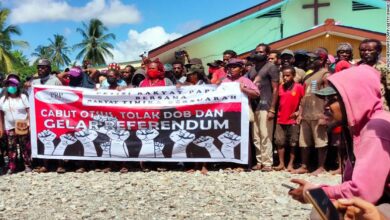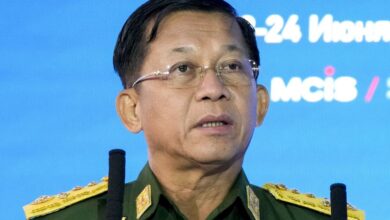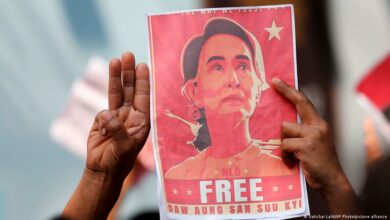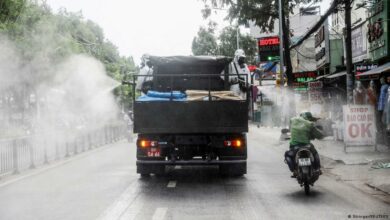PHNOM PENH, Cambodia — Southeast Asian leaders called Wednesday for Western countries, including the European Union, to immediately lift punitive sanctions imposed on Myanmar now that the once-pariah nation has embraced democratic reforms.
The leaders of the 10-member Association of Southeast Asian Nations made the call after concluding an annual summit in the Cambodian capital. Myanmar was represented at the gathering by President Thein Sein, who received a flurry of praise for the recent reforms in his poor Southeast Asian nation, most recently Sunday's by-elections won by pro-democracy champion Aung San Suu Kyi and her party.
Cambodian Prime Minister Hun Sen said the appeal for sanctions to be lifted would first be relayed to the EU, which punished formerly military-ruled Myanmar for massive human rights violations.
During the two-day summit, Thein Sein reported to the other leaders that the elections saw a huge turnout of voters and were held peacefully, drawing praise from his counterparts, Indonesian Foreign Minister Marty Natalegawa said.
Until recently, Myanmar was the black sheep of ASEAN, with other member countries repeatedly reprimanding it for its failure to move forward on a promised roadmap to democracy, including the freeing of Suu Kyi from years of house arrest.
"This is a tremendous change in the dynamics nowadays," Natalegawa said. "Normally the Myanmar issue is discussed as a problem but now it's seen as very much different."
"Certainly there was no condemnation; there were lots of commendations," he said.
Natalegawa said ASEAN foreign ministers would relay their appeal for the sanctions' lifting when they meet their EU counterparts in the near future.
Last month, the EU suspended entry restrictions against 87 top Myanmar officials to reward its moves toward political reforms, but a freeze on their assets will be maintained until further notice. The EU also still has in place an arms embargo and a ban on the sale of goods linked to internal repression. It also has suspended certain development aid programs.
The weekend vote in Myanmar will fill just 45 vacant seats in the country's 664-seat Parliament but took on historic significance because of Suu Kyi's presence. After two decades as a political prisoner, Suu Kyi won a victory that marked a turn in her political career and for the country as it emerges from a half-century of military rule.
While they mustered a united front on Myanmar, some Southeast Asian countries wrangled over a proposal to craft a nonaggression accord aimed at preventing armed clashes over territorial rifts in the South China Sea that involve China and ASEAN members Brunei, Malaysia, Vietnam and the Philippines. Taiwan also contests vast areas in the resource-rich region.
Other members of ASEAN are Cambodia, Indonesia, Laos, Myanmar, Singapore and Thailand.
Philippine President Benigno Aquino III insisted ASEAN must craft such a "code of conduct" and then take it up with China as a group. Beijing opposes any arrangement that would force it to face a bloc of nations. China wants to negotiate with individual claimant countries over the disputes, something that will give it advantage for its sheer size.
The Philippines, backed by Vietnam, wanted Cambodia, ASEAN's steward this year, to make that sequence clear in a summit statement. Cambodia later issued a statement that avoided any mention of the contentious issue.
Cambodia's summit statement renewed ASEAN's call for the peaceful resolution to the issue of North Korea's nuclear program but completely ignored any mention of a rocket launch planned for later this month.




